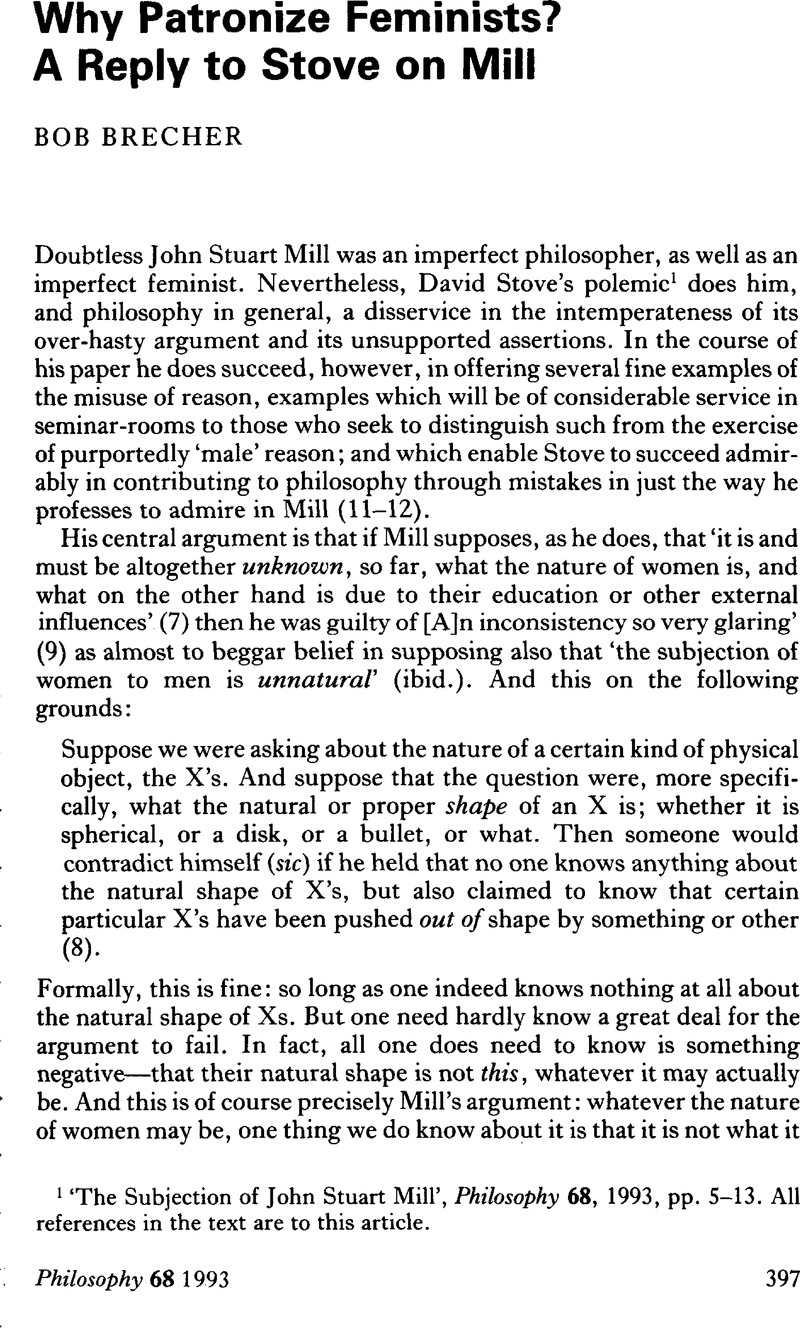Published online by Cambridge University Press: 30 January 2009

1 ‘The Subjection of John Stuart Mill’, Philosophy 68, 1993, pp. 5–13Google Scholar. All references in the text are to this article.
2 (London: Longmans, Green, Reader and Dyer, 1874).
3 Gyn/Ecology (London: The Women's Press, 1979)Google Scholar; Pure Lust (London: The Women's Press, 1984).Google Scholar
4 For The Record: The Making and Meaning of Feminist Knowledge (London: The Women's Press, 1985).Google Scholar
5 The Dialectic of Sex (London: The Women's Press, 1979, n.e.).Google Scholar
6 The Mermaid and the Minotaur: Sexual Arrangements and Human Malaise (New York: Colophon, 1977), 21–22Google Scholar. Jaggar, Alison, Feminist Politics and Human Nature (Brighton: Harvester Press, 1983)Google Scholar, Segal, Lynne, Is the Future Female? (London: Virago, 1987)Google Scholar (esp. ch. 1) and Coward, Ros, The Whole Truth (London: Faber and Faber, 1989)Google Scholar (esp. ch. 6) all argue that questions of naturalness are incoherent. Plumwood, Val, ‘Women, Humanity and Nature’, in Socialism, Feminism and Philosophy, Sayers, S. and Osborne, P. (eds), (Routledge: London, 1990), pp. 211–234Google Scholar, is a useful source for debate on this. Greer, Germaine, by contrast, seems in Sex and Destiny (New York: Harper & Row, 1984)Google Scholar to come very close to arguing that it is natural: Griffin, Susan, Women and Nature: the Roaring Inside Her (London: The Women's Press, 1984)Google Scholar is perhaps the standard explicit statement of this position.
7 Warnock, Mary's introduction to the Fontana (London, 1962)Google Scholar edition of Utilitarianism is the standard source for an unorthodox—but no less plausible for that—view of what Mill thought the relation was between ‘desired’ and ‘desirable’ (25–27).